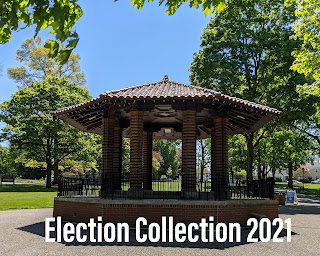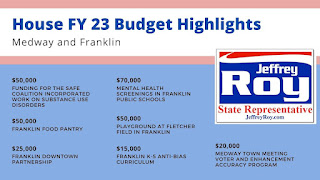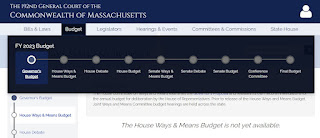On Thursday, March 10, 2022, the Massachusetts State Senate passed legislation to increase public oversight over the administration of state-operated veterans’ homes in Holyoke and Chelsea. To improve safety and transparency at the veterans’ homes, the bill would restructure the chain of command to more closely match established administrative practices used in hospitals and other large organizations. This legislation follows continued scrutiny of administrative failures at the veterans’ home in Holyoke, which led to the tragic deaths of 77 veterans during the early days of the pandemic, and builds on recommendations made by the Special Joint Oversight Committee on the Soldiers’ Home in Holyoke COVID-19 Outbreak, which investigated.
“As the daughter of a veteran, I continue to be heartbroken for the families of those who lost their lives to COVID-19 at the Holyoke Soldiers’ Home,” stated Senate President Karen E. Spilka (D-Ashland). “I would like to thank the Special Joint Oversight Committee on the Soldiers’ Home in Holyoke COVID-19 Outbreak for their thorough investigation of this tragedy, as well as my colleagues in the Senate who have remained focused on dramatic and drastic governance reform to our veterans’ services to ensure the tragedy that occurred in Holyoke never happens again. The Senate will continue to lead in its efforts to support the brave men and women who have served our country. I want to thank Senator Rush for working for over a decade to confront the issues that affect the treatment of veterans and that impact veterans’ services, as well as Senators Rodrigues and Velis for their partnership in crafting this bill.”
“With the passage of this bill, the Senate recognizes the need to prioritize accountability and oversight, establish effective checks and balances, and ensure clear chains of command at our state’s long-term care facilities for veterans in order to prevent the tragedy at Holyoke Soldiers’ Home from ever happening again,” said Senator Michael J. Rodrigues (D-Westport), Chair of the Senate Committee on Ways and Means. “Thank you to Senate President Spilka for her leadership, to Senators Rush and Velis for their tireless efforts in shaping this bill, and to my colleagues in the Senate for their continued commitment to supporting our veterans.”
"The Soldiers’ Homes have long suffered from gaps in accountability and a confused chain of command, factors which left it unable to deal with a crisis like the one we saw with the onset of the Covid-19 pandemic,” said Senator Michael F. Rush (D-Boston), Senate Vice Chair of the Joint Committee on Veterans and Federal Affairs and sponsor of the bill. “The bill passed by the senate today tightens these gaps, enhances the level of oversight by elevating the Secretary of Veterans’ Services to a cabinet level position, and creates a stronger governing structure that supports our veterans and provides high quality care. Thank you to Senate President Spilka, Chairman Rodrigues, and my colleagues in the senate for your continued support of the commonwealth’s veterans
“From removing burdensome reporting layers and cleaning up the chain of command, to putting in place important infection control and medical oversight, this legislation builds on a lot of the critical lessons that we learned since the tragic COVID-19 outbreak at the Holyoke Soldiers’ Home in the spring of 2020,” said Senator John C. Velis (D-Westfield), Chair of the Joint Committee on Veterans and Federal Affairs. “Those lives lost are the reason this legislation is before us today, to do right by them, and to do right by all the Veterans who will call Massachusetts home in the coming years. I want to thank the Senate President, the Chair of Ways & Means, and Senator Rush for their steadfast leadership on these important reforms and all my colleagues for their consistent support of our Commonwealth’s Veterans.”
This comprehensive reform bill is designed to increase the safety of residents of veterans’ homes in the Commonwealth. A new, full-time ombudsperson would receive, investigate, and assist in resolving complaints related to the health, wellbeing, and rights of veterans’ homes’ residents and staff. To effectively aid these efforts, a public hotline would be created for residents and staff to direct concerns. The bill would also task the Department of Public Health (DPH) with regularly inspecting the homes; all inspection reports would being made publicly available, excluding identifying information of patients and staff. Veterans' homes would be required to be licensed as long-term care facilities by DPH and adhere to the same standards and regulations.
Amendments adopted during floor debate will ensure that all veterans’ homes are licensed as long-term care facilities; employ both an infection control specialist and an emergency preparedness specialist; have adequate infection control programs in place; and establish best practices for treating post-traumatic stress disorder. Other adopted amendments direct the Secretary of Veteran’s Services to conduct an outreach program on the benefits and application process for the veterans’ homes, and require all annual reports from the statewide and regional veterans’ homes advisory councils to be publicly accessible online.
State-operated veterans’ homes in Massachusetts are managed by a Superintendent, who is responsible for everyday operation of the homes and for ensuring improvements to quality of care. The Senate’s legislation would give the authority to appoint a superintendent for each of the Veterans’ Homes to the Executive Director of the Office of Veterans’ Homes and Housing (OVHH). Under the legislation, superintendents would be required to fulfill certain criteria, including being a licensed nursing home administrator with experience running a long-term care facility. Priority would also be given to superintendent candidates who are themselves veterans.
The Executive Director of OVHH would be appointed by the Massachusetts Secretary of Veterans Services, which would be elevated to a cabinet-level position, appointed by the Governor. The Secretary would be required to promulgate regulations concerning the operations and administration of veterans’ homes. Elevating the Secretary to a cabinet-level position would facilitate more timely attention to all personnel challenges.
In addition to altering the command structure responsible for managing veterans’ homes, the bill would also create a statewide Massachusetts Veterans’ Homes Advisory Council, tasked with recommending policies to the Secretary of Veterans Services, as well as Regional Councils, which would be tasked with representing the interests of the local community, residents, and family members at each veterans’ home. Both the statewide Massachusetts Veterans’ Homes Advisory Council and Regional Councils would report annually to the Secretary and to the Legislature. Together with the Secretary of Health and Human Services, these councils would be empowered to submit nominations for and recommend the removal of superintendents.
Furthermore, the bill would require each home to have a full-time specialist in infection control and emergency preparedness and to adhere to medically-sound guidelines for trauma-informed care, including best practices for the treatment of post-traumatic stress disorder (PTSD) and suicide prevention. Additionally, the homes would be required to maintain organizational plans, updated annually, for normal and emergency operations.
The Senate’s bill would remove existing procedural hurdles which make it harder to donate operating supplies, clothing, medical equipment, personal hygiene products, and holiday gifts to veterans’ homes.
This legislation would set procedures and guidelines for filling vacant positions at veterans’ homes, including posting job openings in a timely fashion, and ensuring that an employee is available to temporarily be tasked with any unfulfilled emergency duties while the position is vacant. Additionally, annual performance reviews would be mandated for all leadership positions at each home.
To facilitate veterans’ access to health care, state-operated veterans’ homes would be required to accept Medicare and Medicaid payments. The bill would also provide mental health resources to employees of state-operated veterans’ homes who worked during the pandemic, and create a commission to rename the Veterans’ Homes in Chelsea and Holyoke after specific Massachusetts veterans.
Finally, the Senate adopted an amendment from Senator Velis to establish March 21 as Veterans’ Homes Remembrance Day, to honor the veterans who lost their lives due to the tragic COVID-19 outbreaks at veterans’ homes.
As a version of An Act relative to the governance, structure and care of veterans at the commonwealth’s veterans’ homes has previously passed the Massachusetts House of Representatives, a conference committee will be appointed to resolve any differences between the Senate and House versions.
Senate Legislation link -> https://malegislature.gov/Bills/192/S2739
House Legislation link -> https://malegislature.gov/Bills/192/H4441
 |
| MASS Senate Unveils Oversight Reform for Veterans’ Homes |








